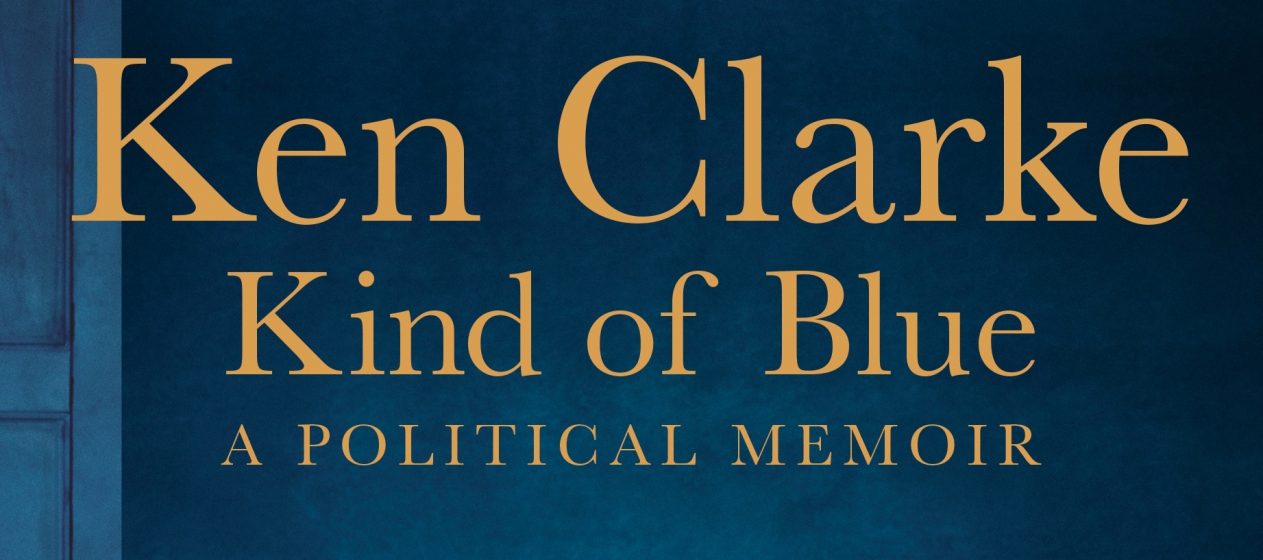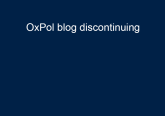 Few have held as many senior posts in the British government as Ken Clarke. The list includes Chancellor of the Exchequer, Home Secretary, Lord Chancellor and Justice Secretary, Education Secretary, Health Secretary and Minister without Portfolio. Throughout his political career, Mr Clarke has been an economic and social liberal, an internationalist and a strong supporter of the European idea. In a recent conversation with OxPol, Ken Clarke discusses his memoir, A Kind of Blue, his political legacy and his disapproval of this year’s Brexit referendum. It is quite likely, he argues, that we will be seeing a recession by next year.
Few have held as many senior posts in the British government as Ken Clarke. The list includes Chancellor of the Exchequer, Home Secretary, Lord Chancellor and Justice Secretary, Education Secretary, Health Secretary and Minister without Portfolio. Throughout his political career, Mr Clarke has been an economic and social liberal, an internationalist and a strong supporter of the European idea. In a recent conversation with OxPol, Ken Clarke discusses his memoir, A Kind of Blue, his political legacy and his disapproval of this year’s Brexit referendum. It is quite likely, he argues, that we will be seeing a recession by next year.
Having written your memoir, what is it that you would like people to remember you for?
Memoirs are narratives, dictated into a Dictaphone. I talked about the events I was involved in, recollections and anecdotes from these… Through this, I was essentially trying to explain to people the principles and the political beliefs that I hold and the difference I was trying to make. The objective I was trying to achieve. Subtly, not blatantly. I am an economic and social liberal, an internationalist and a pro-European. Through my memoir, I wanted to propagate my ideas, which, after all, are under considerable challenge at the moment.
You once said that you are “addicted to politics” and “the mad mayhem of it all“. What is it about politics that makes it addictive for you?
Laughs. You know, my friends sometimes have irritated reactions to crises. I quite enjoy crises and political combat. Most people, for instance, were appalled by Black Wednesday. I actually found it quite interesting. This is what I had come into politics for. Normally, I am an incurable debater. I don’t mind a constant level of debate and dispute, as long as you are trying to find a solution to the problems affecting you and other people.
I quite enjoy crises and political combat
A dull period in politics, on the other hand, disappoints me. Tony Blair’s first term, for instance. He made few policy changes but was totally in command of things and his political honeymoon lasted longer than that of most people. Until his catastrophic decision, of course, to join the invasion of Iraq.
In an interview with The Observer in 2014, you said, “I think my rule is: it’s never as bad as you think.” Would you say the same after the referendum this June?
Laughs. Good question! Because of my veteran status, people often ask me, do you remember politics ever being in as bad a state as this? At the moment, things are pretty bad. This is quite the biggest shambles I have seen. The British establishment never thought that the public would vote to leave the European Union. On the night of the count, 99 per cent of politicians were taken by surprise at the result. Hence, they did not contemplate what to do in the event.
Trump never imagined for one moment, that he would become the next president
The United States are facing a similar situation. Trump never imagined for one moment, that he would become the next president. He does not know what to do. Now, on both sides of the Atlantic, someone is now going to have to decide what kind of a government we are going to have and what its policies are going to be.
As to the continent, Madame Le Pen now has a run at the presidency, although Geert Wilders is the one who worries me the most. He is doing remarkably well. I hope that Angela Merkel, my heroine, will keep the Alternative für Deutschland under control in her home country. She is, after all, now the object of attack of those people who are whipping up xenophobia. Her sentiments on immigration, although noble, have set off a wave of protests in Germany and she has arguably lost much of her hold on the public.
I think we are witnessing an angry, simplistic protest about the complications of the modern world and in light of rising contempt for the political class
Drawing these strands of thought together, there is a tentative theory I hold. I have not worked out quite why things are happening as they are. Yet, that being said, I think we are witnessing an angry, simplistic protest about the complications of the modern world and in light of rising contempt for the political class. That is because they do not have simple solutions for complicated problems. My generation are feeling left behind by the pace of change. Yet at the same time, they are witnessing consistently slow progress when governments are tackling problems. Instead, they like noisy, aggressive, simplistic people who have simplistic answers, scapegoats and fantastic measures to tackle problems.
From your perspective, what issues of the Brexit debate were not sufficiently highlighted?
No serious issues were discussed in the serious media on either side. The main thing I recall from the campaign, as far as the national media is concerned, is that the remainers said the economy would be ruined. Income tax would come up, the health service budget would have to be slashed and we should stay in the dreadful European Union, because economic calamity would be the alternative. The leavers said that if we did not leave, 77 million Turks would acquire the right to come here, taking our jobs and swamping our public services.
Now we are immersed in an extremely complex question: Are we going to leave the single market and the customs union? And following on that, what are we going to put in its place? Far from being determined by the referendum, these questions were not addressed by anybody. The newspapers don’t know what May and Trump are going to do. They don’t even know it themselves.
What is your opinion on referenda in general?
A very bad idea. This year has been a disaster for the UK, a disaster for President Santos in Colombia, for Orbán in Hungary (although I’m not too worried about that) and I am extremely worried about where Renzi is going to wind up in the end. Crisis has been the result in every case. Every politician in my generation was against referenda.
I hope it will be a long time before any sensible country has a referendum again.
When I was around in the government whip’s office, when entering the EU, nobody wanted to have a referendum. We have a parliamentary democracy. That means the people who are deciding in parliament are personally accountable for the judgment that they exercise. People can turn them out at the next vote. Now, four parties out of five favour being members of the EU, yet the House of Commons will vote to leave it. We will have a parliament of hypocrites. I hope it will be a long time before any sensible country has a referendum again.
Where does the Brexit referendum leave Britain in the long term?
I haven’t the faintest idea. Nor does anybody else. Nobody in the House of Commons knows what is going to happen between here and Christmas.
Where is the Conservative Party heading?
It’s too soon to tell. At the moment, the majority of the present party are pro-Europeans. Yet there is a large rump of Euro-sceptics and that rump is in the ascendancy. And to add further complications, the economic outlook gives lots of causes for concern. We are probably going to have a recession next year. It would be a pleasant surprise, if this does not happen.
What do you know now, that you wish you had known you entered parliament as a 29-year-old lawyer in the election of 1970?
A vast number of things. Wanting to go into politics is a bit like wanting to go onto the stage. Many are not lucky. Most people, when they are students, are active in politics and completely opinionated. I had formed my views by the time I was leaving Cambridge. I arrived in the House of Commons brash and full of confidence, ready to be Chancellor of the Exchequer. It took me a few years to realise I did not have a proper understanding of government and politics at all. I was placed in the government whip’s office. That shut me up and gave me an insight into how government, parliament and political parties work. That was the beginning of the process that matured my views.
Many years of experience have taught me that it is important to listen to other people. To absorb. To think about it seriously. It improves your chances of getting done what you want. I essentially ran my departments like a debating society. And I would listen to other people. That way, you improve the quality of the decisions you take and their implementation.







